Literature Quotations
Top Fictional Quotes on Kinship & Friendship

You could be wondering, ‘Quotes about family and friendship from fictional sources? What new insight could they possibly provide?’
Well, let us assure you, dear reader, that within the realm of literature, there exists a treasure trove of wisdom and insight on the bonds that tie us together.
From the magical world of Harry Potter to the enchanting realms of Middle Earth in Lord of the Rings, these fictional tales have gifted us with profound quotes that evoke a sense of connection and camaraderie.
Whether it’s the timeless words of Jane Austen’s Pride and Prejudice or the poignant lessons from Harper Lee’s To Kill a Mockingbird, these quotes remind us of the power of kinship and friendship.
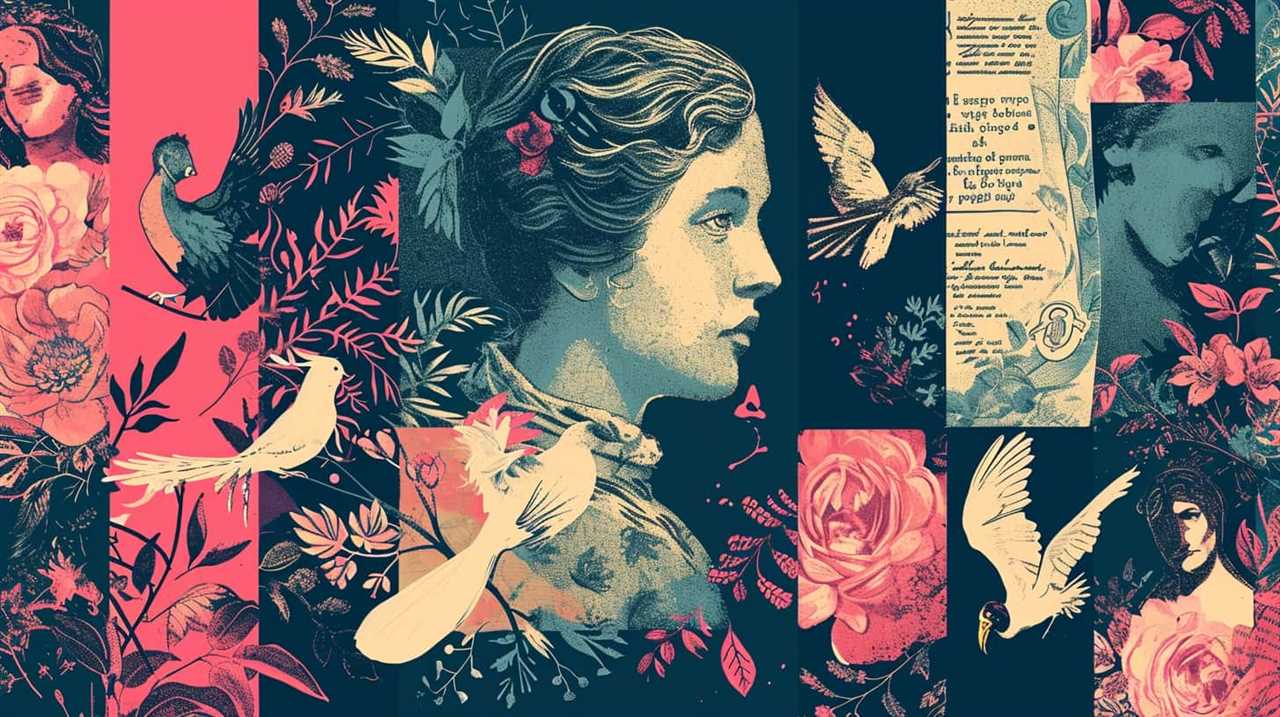
So, join us on this journey as we explore the top fictional quotes that celebrate the beauty of human connection.
Key Takeaways
- Fictional quotes from literature offer wisdom and insight on the bonds that tie us together.
- These quotes evoke a sense of connection and camaraderie among readers and viewers.
- Powerful quotes from various fictional works celebrate the beauty of human connection.
- Lessons on kinship and friendship resonate with people of all ages, highlighting the enduring values and lessons imparted by these stories.
Harry Potter" Series
If you’re a fan of the ‘Harry Potter’ series, you’ll appreciate the profound wisdom and heartfelt sentiments expressed by the characters throughout their journey of kinship and friendship. From the exhilarating Triwizard Tournament to the formation of Dumbledore’s Army, the bonds formed in the wizarding world are truly remarkable.
One of the most memorable quotes from the series comes from Albus Dumbledore himself: ‘We are only as strong as we’re united, as weak as we’re divided.’ This quote highlights the importance of unity and solidarity in the face of adversity. It serves as a reminder that true strength lies in coming together as a community, supporting and uplifting one another.
Another notable quote comes from Hermione Granger, the brilliant and resourceful Gryffindor student. She says, ‘Fear of a name only increases fear of the thing itself.’ This quote emphasizes the need to confront our fears head-on, rather than avoiding or denying them. It encourages us to be brave and stand up against injustice, even when it seems daunting.

Throughout the ‘Harry Potter’ series, the characters teach us valuable lessons about loyalty, courage, and the power of friendship. These quotes serve as reminders of the enduring values that the series imparts, resonating with readers of all ages.
Lord of the Rings" Trilogy
Explore the epic bonds of kinship and friendship in the ‘Lord of the Rings’ Trilogy as the characters embark on a transformative quest to save Middle-earth. One of the most iconic aspects of the trilogy is the friendship in the Fellowship of the Ring. Frodo Baggins, the ring-bearer, is accompanied by a diverse group of individuals who form an unbreakable bond. From the brave Aragorn to the loyal Samwise Gamgee, these characters demonstrate the importance of standing together in the face of adversity.
However, the power of the ring also tests the strength of their friendship. It tempts members of the Fellowship, exploiting their weaknesses and threatening to tear them apart. Boromir, for instance, succumbs to the ring’s allure and tries to take it from Frodo. This moment highlights the delicate balance between loyalty and personal desires within the fellowship.
Throughout the trilogy, the characters learn that true friendship requires sacrifice and selflessness. Frodo and Sam’s unwavering loyalty to each other is a testament to this. Their journey to destroy the ring is filled with danger and hardship, but their unbreakable bond carries them through.

In the ‘Lord of the Rings’ Trilogy, the theme of friendship is explored in a way that resonates with audiences. It reminds us of the importance of standing together, even when faced with the most powerful of temptations.
Pride and Prejudice
Immerse yourself in the world of ‘Pride and Prejudice’ and witness the complexities of kinship and friendship unfold. In Jane Austen’s beloved novel, the themes of pride and prejudice are intricately woven into the relationships between characters, highlighting the delicate balance between social expectations and personal connections.
- Misjudgments: The novel challenges the notion of making assumptions based on first impressions. Characters like Elizabeth Bennet and Mr. Darcy initially hold biased opinions of one another, only to later discover the error of their judgments. This reminds us to look beyond surface appearances and give others a chance to reveal their true selves.
- Unlikely Alliances: ‘Pride and Prejudice’ showcases the power of unlikely friendships. Despite their differing personalities and social statuses, Elizabeth and Charlotte Lucas form a deep bond that withstands societal pressures. This teaches us that genuine connections can be formed even in the most unexpected circumstances.
- Family Dynamics: The novel delves into the complexities of family relationships and the impact they’ve on our lives. The Bennet family, with their unique personalities, showcases the range of dynamics that can exist within one kinship. Through their interactions, we learn the importance of understanding and supporting one another, despite our differences.
- Love and Redemption: ‘Pride and Prejudice’ ultimately teaches us the transformative power of love and redemption. As Elizabeth and Darcy overcome their pride and prejudices, their relationship blossoms into a beautiful love story. This reminds us that genuine love can conquer societal expectations and bring about personal growth and change.
Through its timeless exploration of pride and prejudice, ‘Pride and Prejudice’ offers valuable insights into the complexities of kinship and friendship. It serves as a reminder to challenge our preconceptions, embrace unlikely alliances, navigate family dynamics, and believe in the transformative power of love and redemption.
To Kill a Mockingbird
In Harper Lee’s classic novel ‘To Kill a Mockingbird,’ you’ll discover the deep bond between Scout and Boo Radley, as Scout learns the power of empathy and understanding.

Atticus Finch, Scout’s father, teaches her the importance of seeing things from others’ perspectives, ultimately shaping her understanding of the world.
Additionally, the story portrays the triumph of friendship over racial prejudice, as Scout and Jem befriend their African-American neighbor, Calpurnia, and learn to challenge the unjust social norms of their time.
Scout’s Bond With Boo
Discover Scout’s profound bond with Boo in the classic novel ‘To Kill a Mockingbird’.
Scout and Boo’s friendship is a central theme in the story, highlighting the power of overcoming fear and fostering personal growth. Here are four key aspects of their bond:

- Unexpected Connection: Scout, initially wary of Boo Radley, develops a deep connection with him as she discovers his true nature, breaking down the barriers of prejudice.
- Mutual Protection: Boo protects Scout and her brother Jem, saving them from harm when they’re attacked. This act of bravery solidifies their bond and shows the strength of their friendship.
- Emotional Support: Boo becomes a source of comfort for Scout, providing emotional support during difficult times. His presence serves as a guiding light in her life.
- Lessons in Empathy: Through her relationship with Boo, Scout learns valuable lessons about empathy and understanding, expanding her worldview and maturing as a person.
Scout’s bond with Boo sets the stage for Atticus teaching empathy, as it shows the transformative power of human connection and the importance of understanding others.
Atticus Teaching Empathy
As you delve into the theme of Atticus teaching empathy in ‘To Kill a Mockingbird’, you’ll witness the transformative impact of his guidance on the characters’ understanding of others.
Atticus Finch, a dedicated father and lawyer, becomes a model for teaching compassion and understanding to his children, Scout and Jem. Through his actions and words, Atticus instills in them the importance of empathy, encouraging them to put themselves in other people’s shoes and see the world from their perspective.
Atticus teaches his children that empathy isn’t only about sympathizing with others, but also about actively trying to understand their experiences and challenges. This lesson in empathy extends beyond the pages of the novel, reminding readers of the power of compassion in fostering a more inclusive and understanding society.

Transitioning into the subsequent section about ‘friendship overcoming racial prejudice’, the characters’ newfound empathy serves as the foundation for creating genuine connections and breaking down barriers between people of different backgrounds.
Friendship Overcoming Racial Prejudice
Continuing from Atticus teaching empathy, you’ll now explore how friendship overcomes racial prejudice in ‘To Kill a Mockingbird’. The novel beautifully portrays the power of genuine connections to break down barriers and challenge societal norms.
Here are four key ways in which friendship triumphs over prejudice:
- Looking beyond appearances: Scout and Jem befriend their African American neighbor, Calpurnia, proving that friendship is blind to skin color.
- Questioning stereotypes: Through their friendship with Tom Robinson, a black man falsely accused of a crime, Scout and Jem learn to challenge the stereotypes perpetuated by their community.
- Building bridges: The relationship between Scout and her classmate, Walter Cunningham, demonstrates how friendship can bridge the gap between different social classes.
- Empathy and understanding: Atticus teaches his children to view the world through others’ eyes, fostering empathy and understanding, which ultimately leads to friendship.
By overcoming stereotypes and building bridges, these friendships in ‘To Kill a Mockingbird’ show us the transformative power of connection in overcoming racial prejudice.

Transitioning to the subsequent section about ‘The Great Gatsby’, let’s explore another tale of friendship and its complexities.
The Great Gatsby
Get ready to immerse yourself in the dazzling world of ‘The Great Gatsby’ as we explore its themes of unrequited love and longing, materialism and social status, and the contrast between illusion and reality.
From the enigmatic Jay Gatsby pining for his lost love, to the extravagant parties and opulent lifestyles that symbolize the pursuit of wealth and status, this iconic novel by F. Scott Fitzgerald delves into the complexities of human relationships and the illusions we create to mask our true selves.
Prepare to be captivated by the timeless allure and poignant truths that ‘The Great Gatsby’ has to offer.
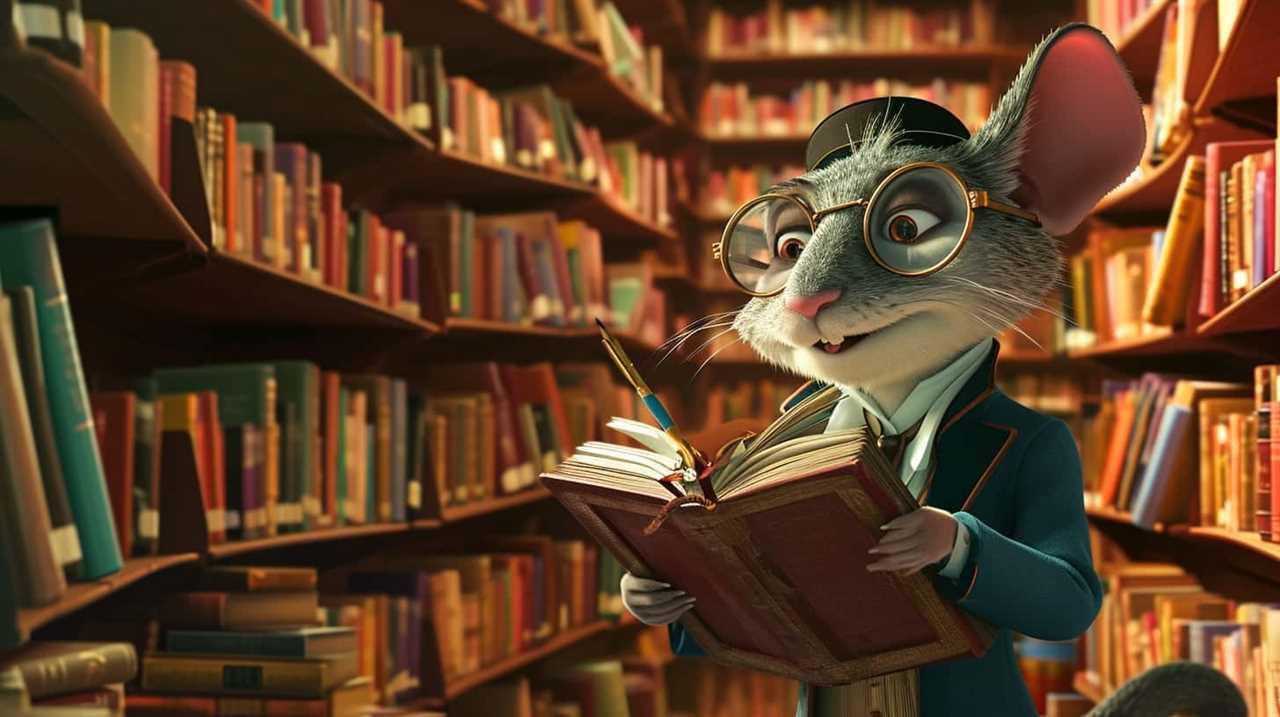
Unrequited Love and Longing
Why does Gatsby’s unrequited love for Daisy fuel his eternal longing in The Great Gatsby? Gatsby’s unrequited love and unfulfilled desires for Daisy drive the central theme of longing throughout the novel. Here are four reasons why Gatsby’s love for Daisy intensifies his yearning:
- Idealization: Gatsby idolizes Daisy, placing her on a pedestal and creating an unattainable image of perfection in his mind.
- Nostalgia: Gatsby’s love for Daisy is rooted in the past, representing his longing for a time when their love seemed possible.
- Obsession: Gatsby’s obsession with Daisy consumes him, as he dedicates his entire life to winning her back, hoping to recreate their past romance.
- Illusion vs. Reality: Gatsby’s unrequited love for Daisy blurs the line between fantasy and reality, causing him to chase an unattainable dream.
Gatsby’s unrequited love for Daisy serves as a poignant reminder of the power and consequences of unfulfilled desires, ultimately leading to his tragic downfall.
Materialism and Social Status
As you delve into the theme of Materialism and Social Status in The Great Gatsby, it becomes apparent that wealth and social standing play a pivotal role in shaping the characters’ lives and relationships.
In the roaring 1920s, societal pressures placed great importance on material possessions and social status. The characters in the novel, such as Jay Gatsby, Daisy Buchanan, and Tom Buchanan, all strive for wealth and status, believing that it will bring them happiness.

However, as the story unfolds, it becomes clear that materialism and social status don’t guarantee true fulfillment. Gatsby’s extravagant parties and luxurious lifestyle may impress others, but they don’t bring him the happiness he desires.
This serves as a cautionary tale, reminding us that true happiness can’t be found in material possessions or societal status alone.
Illusion Versus Reality
Exploring the theme of ‘Illusion Versus Reality’ in The Great Gatsby reveals the stark contrast between appearances and truth. In this classic novel by F. Scott Fitzgerald, the characters are often caught up in a world of illusion, where reality is distorted by their perception of themselves and others.
Here are four key points that highlight the power of friendship and the impact of reality versus perception in The Great Gatsby:

- Jay Gatsby’s illusion of wealth and success masks the reality of his lonely and unfulfilled life.
- The friendship between Gatsby and Nick Carraway provides a glimpse into the genuine connection that can exist amidst a world of illusion.
- Daisy Buchanan’s perception of her life with Tom is shattered when she realizes the reality of his infidelity.
- The tragic ending of the novel highlights the devastating consequences of living in a world of illusion and the ultimate truth that can’t be escaped.
As we explore the theme of illusion versus reality in The Great Gatsby, we begin to see the fragile nature of appearances and the profound impact they can have on our lives.
Transitioning into the subsequent section about ‘The Fault in Our Stars’, we delve into another realm where reality is challenged and the power of friendship is tested.
The Fault in Our Stars
In ‘The Fault in Our Stars’, the profound bond between the characters exemplifies the transformative power of love and resilience. This young adult novel by John Green explores the themes of grief and healing, as well as teenage romance, in a way that resonates with readers of all ages.
The story follows Hazel and Gus, two teenagers who meet at a cancer support group. Despite their health challenges, they form a deep connection and embark on a journey of love and self-discovery. Their relationship isn’t only a source of comfort and joy, but also a catalyst for personal growth and healing.

The grief experienced by Hazel and Gus is palpable throughout the book, as they navigate the challenges of living with a terminal illness. However, their love for each other becomes a source of strength and resilience. Through their shared experiences, they learn to embrace the present moment and find solace in each other’s company.
The teenage romance portrayed in ‘The Fault in Our Stars’ is both tender and heart-wrenching. It captures the intensity and vulnerability of first love, while also shedding light on the complexities of living with a chronic illness. Hazel and Gus’s relationship serves as a reminder that love knows no boundaries and can transcend even the darkest of circumstances.
The Chronicles of Narnia
Get ready to embark on a journey to the magical world of Narnia, where deep bonds are formed and tested.
In the Chronicles of Narnia, you’ll witness the power of loyalty and sacrifice, as friends stand by each other through thick and thin.

Through the adventures of the Pevensie children and their encounters with talking animals and mythical creatures, you’ll learn valuable lessons about the true meaning of friendship.
Deep Bonds in Narnia
You frequently experience deep bonds in Narnia through the adventures of the characters in The Chronicles of Narnia. This magical world is filled with extraordinary connections that transcend time and space. From the Pevensie siblings to Aslan and his loyal followers, Narnia showcases the power of relationships that go beyond the ordinary.
In Narnia, deep connections are formed through:
- Unbreakable friendships that withstand the test of time and adversity.
- Sacrifices made for the ones you love, even if it means putting yourself in danger.
- Shared experiences and adventures that create lasting memories and strengthen bonds.
- Unconditional support and understanding that helps characters overcome their fears and doubts.
These magical friendships in Narnia remind us of the importance of cherishing and nurturing the deep connections we’ve in our own lives. They inspire us to be there for our friends and loved ones, fostering a sense of unity and resilience in the face of challenges.

Loyalty and Sacrifice
Embrace the unwavering loyalty and selfless sacrifices witnessed in The Chronicles of Narnia. In this epic series, betrayal and forgiveness are explored, highlighting the depth of friendship in times of war. The characters demonstrate remarkable loyalty, even when faced with immense challenges.
One such example is when Edmund, despite being deceived by the White Witch, ultimately chooses to stand with his siblings, proving that true friendship can overcome betrayal. The theme of sacrifice is also prevalent, as the characters willingly put their own lives on the line for the greater good. From Peter leading the Narnian army into battle to Aslan sacrificing himself for Edmund’s redemption, these acts of loyalty and sacrifice teach us profound lessons in friendship.
Transitioning into the next section, let’s delve into the valuable lessons we can learn from these timeless tales.
Lessons in Friendship
Explore the valuable lessons in friendship that The Chronicles of Narnia teaches. This beloved series by C.S. Lewis not only takes readers on a magical adventure, but it also imparts profound insights about the essence of true friendship. Here are four key lessons to take away from The Chronicles of Narnia:

- Lessons in Forgiveness: The characters in Narnia display a remarkable capacity for forgiveness, even in the face of betrayal and hurt. From Edmund’s redemption to Aslan’s ultimate sacrifice, forgiveness is shown as a powerful force that can mend broken relationships and restore trust.
- The Power of Vulnerability: The Chronicles of Narnia teaches us that vulnerability isn’t a weakness, but a strength. The characters learn to open themselves up emotionally, allowing for deeper connections and meaningful friendships to blossom.
- Loyalty and Devotion: The bonds of loyalty and devotion are tested and celebrated throughout the series. Whether it’s Lucy’s unwavering belief in her siblings or the loyalty of the talking animals, The Chronicles of Narnia reminds us of the importance of staying true to those we hold dear.
- Friendship as a Source of Strength: The friendships formed in Narnia provide strength and support during challenging times. The characters rely on one another’s strengths and lean on each other for guidance and encouragement.
As you delve into The Chronicles of Narnia, be prepared to discover a treasure trove of lessons in forgiveness and the power of vulnerability. This series will inspire you to cultivate deeper, more meaningful friendships in your own life.
The Catcher in the Rye
Holden Caulfield frequently reflects on the complexities of kinship and friendship in J.D. Salinger’s iconic novel, The Catcher in the Rye. Throughout the story, Holden’s alienation and search for meaning are prominent themes that shape his views on relationships.
As a young and disillusioned protagonist, Holden struggles to connect with those around him, often feeling isolated and misunderstood. His alienation stems from a deep-rooted dissatisfaction with the phoniness and superficiality he perceives in society.
Holden’s search for meaning is intricately intertwined with his longing for genuine human connection. He yearns for authentic relationships, free from the masks and pretenses that plague the world he despises. This desire for sincerity and intimacy propels Holden’s interactions with others, as he constantly seeks moments of genuine connection in a world that seems devoid of them.

In The Catcher in the Rye, Holden’s reflections on kinship and friendship offer a poignant exploration of the complexities and challenges inherent in human relationships. His struggles resonate with readers, reminding us of the importance of authenticity and genuine connection in a world that often prioritizes appearances over substance.
As we transition to the subsequent section on ‘The Kite Runner,’ we’ll delve into another compelling tale that examines the intricacies of friendship and kinship in a different cultural context.
The Kite Runner
In The Kite Runner, you’ll encounter an equally captivating exploration of kinship and friendship, delving into the complexities and challenges that arise within these relationships. Set against the backdrop of Afghanistan, this novel by Khaled Hosseini follows the journey of Amir, a young boy from a privileged background, and his servant and friend, Hassan.
Here are four key themes that highlight the profound impact of kinship and friendship in The Kite Runner:

- Scars and Redemption: The novel explores the lasting scars of betrayal and guilt, as Amir seeks redemption for his past actions. His friendship with Hassan becomes a catalyst for his journey towards self-forgiveness and personal growth.
- Cultural Identity: The Kite Runner delves into the complexities of cultural identity, as Amir grapples with his Afghan heritage while living in America. It raises thought-provoking questions about the sense of belonging and the clash between different cultural norms.
- Belonging: Through the bond between Amir and Hassan, the novel explores the profound need for acceptance and belonging. It shines a light on the power of friendship to bridge divides and create a sense of home.
- Betrayal and Loyalty: The Kite Runner delves into the complexities of loyalty and betrayal, as Amir faces a moral dilemma that tests the limits of his friendship with Hassan. It raises questions about the sacrifices we make for those we love and the consequences of our actions.
In The Kite Runner, Khaled Hosseini weaves a compelling narrative that explores the themes of scars and redemption, cultural identity, and belonging. Through the lens of kinship and friendship, this novel offers a thought-provoking and deeply moving exploration of the human experience.
The Hunger Games" Trilogy
Continue the discussion from the previous subtopic and delve into the captivating world of ‘The Hunger Games’ Trilogy.
Step into the shoes of Katniss Everdeen as she navigates the treacherous arena and forms unbreakable bonds with her loved ones. One of the most heartwarming relationships in the series is Katniss’ unwavering love for her sister, Prim. Despite the brutal circumstances they face, Katniss always puts Prim’s safety above all else, showcasing the depth of their sisterly bond. As the story unfolds, we witness the sacrifices Katniss makes to protect Prim, even volunteering as Tribute in her place. This selfless act of love resonates with readers, reminding us of the strength and resilience of familial connections.
Another significant character in Katniss’ life is Gale Hawthorne, her best friend and eventual love interest. Throughout the trilogy, Gale remains fiercely loyal to Katniss, standing by her side through the darkest of times. His unwavering support and unwavering dedication to her cause make him an invaluable ally. Gale’s loyalty is a testament to the power of friendship and the lengths one is willing to go for those they care about.

In ‘The Hunger Games’ Trilogy, Suzanne Collins weaves a tale of kinship and friendship that captivates readers. Through Katniss’ relationship with Prim and Gale’s loyalty to her, we’re reminded of the importance of family and the bonds that withstand even the harshest of trials.
As you immerse yourself in this dystopian world, prepare to be moved by the strength of these connections and the impact they’ve on the characters’ journeys.
Romeo and Juliet
As you delve into the tragic love story of ‘Romeo and Juliet’, you’ll be captivated by the timeless tale of forbidden love and the enduring power of friendship. Set in Verona, Italy, this Shakespearean masterpiece showcases the intense passion between Romeo and Juliet, two young lovers from feuding families. Their love, though forbidden, burns bright, igniting a chain of events that lead to their tragic ending.
- Love against all odds: Romeo and Juliet’s love transcends societal boundaries and familial animosity, showcasing the strength of love in the face of adversity.
- Friendship as a lifeline: Amidst the chaos, Romeo finds solace in the unwavering friendship of his loyal confidants, Mercutio and Benvolio, highlighting the importance of having a strong support system.
- Fate and tragedy: The story of Romeo and Juliet serves as a cautionary tale about the consequences of impulsive decisions and the tragic outcomes that can arise from them.
- Legacy of love: Romeo and Juliet’s story has endured for centuries, reminding us of the enduring power of love and the eternal nature of their bond.
In ‘Romeo and Juliet’, Shakespeare explores the complexities of forbidden love and the devastating consequences that follow. This timeless tale serves as a reminder of the fragility of life and the everlasting impact that love and friendship can have, even in the face of tragedy.

The Little Prince
Delve into ‘The Little Prince’ and discover the profound quotes that illuminate the themes of kinship and friendship. In this timeless tale by Antoine de Saint-Exupéry, the importance of imagination and the meaning of true friendship are beautifully explored.
Imagination holds a central role in ‘The Little Prince’. Through the eyes of the young prince, we learn that imagination allows us to see beyond the surface, to connect with others on a deeper level. As the prince travels from planet to planet, he encounters characters who’ve lost touch with their imagination and, consequently, with the essence of true friendship. Through this exploration, we’re reminded of the power of imagination in fostering genuine connections and nurturing lasting relationships.
True friendship is another key theme in ‘The Little Prince’. The prince’s friendship with the fox stands out as a poignant example. The fox teaches the prince that true friendship goes beyond mere appearances and requires time, trust, and understanding. Their bond serves as a reminder that true friendship isn’t easily acquired but is a precious treasure worth pursuing.
‘The Little Prince’ invites readers to reflect on the importance of imagination and the profound meaning of true friendship. It reminds us to nurture our imagination and to value the connections we’ve with others. As we delve into this enchanting story, we’re encouraged to embrace the magic of imagination and to cultivate deep and meaningful friendships that enrich our lives.

The Perks of Being a Wallflower
- Discover five powerful quotes on kinship and friendship in ‘The Perks of Being a Wallflower’, a coming-of-age novel that explores the complexities of human connection and the transformative power of genuine relationships.
- ‘We accept the love we think we deserve.’ This quote from Sam, one of the main characters, highlights the importance of self-worth in relationships. It reminds us that we’ve the power to choose the kind of love we allow into our lives.
- ‘In that moment, I swear we were infinite.’ This iconic line captures the euphoria of shared experiences and the deep connection that can be found in friendship. It reminds us of the moments that make us feel truly alive.
- ‘So, this is my life. And I want you to know that I’m both happy and sad and I’m still trying to figure out how that could be.’ This quote, spoken by the protagonist Charlie, explores the complexities of emotions and mental health. It reminds us that it’s okay to feel a mix of emotions and that it’s a part of the human experience.
- ‘We can’t choose where we come from, but we can choose where we go from there.’ This quote speaks to the theme of personal growth and resilience. It reminds us that we’ve the power to overcome our past and shape our own future.
‘The Perks of Being a Wallflower’ is a poignant coming-of-age novel that delves into the intricacies of human connection and the impact it has on our lives. With its exploration of mental health and the transformative power of genuine relationships, it offers readers a unique perspective on the challenges and triumphs of adolescence.
Through the quotes mentioned above, the novel reminds us of the importance of self-worth, shared experiences, embracing our emotions, and the ability to shape our own destinies. It’s a testament to the resilience and growth that can be achieved during the tumultuous journey of coming of age.
Frequently Asked Questions
What Are the Main Themes Explored in the ‘Harry Potter’ Series?
In the ‘Harry Potter’ series, the exploration of loyalty, love, and sacrifice is central. The books also examine the power of friendship and emphasize the importance of trust. These themes make the series truly captivating.
How Does the Character Development of Frodo Baggins in ‘The Lord of the Rings’ Trilogy Reflect the Theme of Friendship?
In "The Lord of the Rings" trilogy, Frodo Baggins’ character growth reflects the theme of friendship by showcasing the importance of companionship. Despite the challenges he faces, Frodo’s bond with Sam and the Fellowship strengthens, emphasizing the power of friendship in overcoming obstacles.

What Role Does Family Play in the Novel ‘Pride and Prejudice’?
In ‘Pride and Prejudice’, family dynamics play a crucial role. The importance of social status is evident as it influences the characters’ actions and decisions. The novel explores the complexities and influence of family in a society driven by social expectations.
How Does the Concept of Empathy and Understanding Shape the Relationships in ‘To Kill a Mockingbird’?
In ‘To Kill a Mockingbird,’ the concept of empathy and understanding shapes relationships by allowing characters to see things from different perspectives. This fosters compassion and strengthens bonds, reminding us of the importance of walking in someone else’s shoes.
What Symbolism Is Present in the Relationship Between Jay Gatsby and Daisy Buchanan in ‘The Great Gatsby’?
In ‘The Great Gatsby’, the relationship between Jay Gatsby and Daisy Buchanan is filled with symbolism. The green light represents Gatsby’s longing for Daisy, while the Valley of Ashes symbolizes the decay of their relationship. Family dynamics in ‘Pride and Prejudice’ shape the characters’ choices and perceptions.
Conclusion
In the realm of fiction, kinship and friendship are beautifully explored through captivating tales and unforgettable characters.
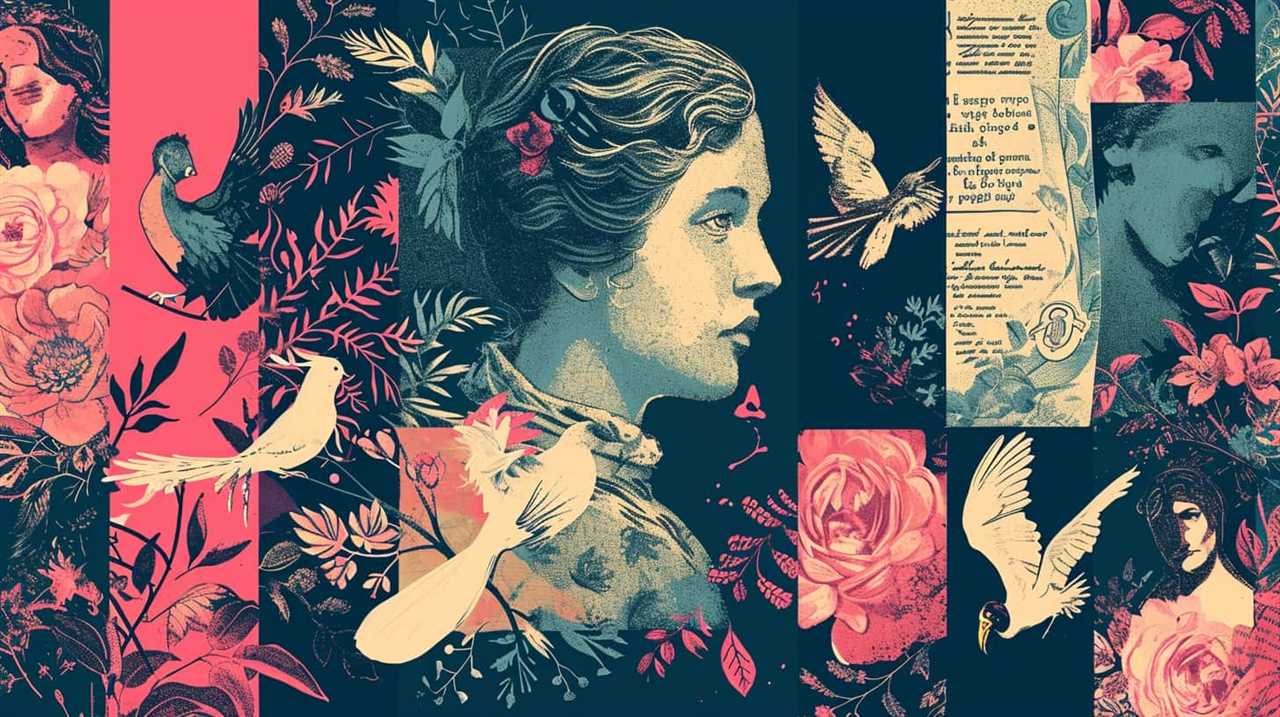
From Harry Potter’s unwavering friendship to Romeo and Juliet’s tragic love, these stories remind us of the profound impact that relationships have on our lives.
Through the power of words, these fictional quotes transport us to worlds where bonds are forged and tested, teaching us about the complexities and joys of human connection.
So, let these quotes inspire you to cherish and nurture the kinships and friendships that enrich your own story.
Lauren’s talent in writing is matched by her passion for storytelling. Her love for books and deep understanding of culture and entertainment add a distinct flavor to her work. As our media and press contact, Lauren skillfully bridges the gap between afterQuotes and the broader media landscape, bringing our message to a wider audience.
Literature Quotations
Witty Literature Quotes to Spice Up Your Banter

Fed up with your jokes landing as poorly as a balloon losing air? Search no more, because we have the perfect solution for you!
Introducing ‘Witty Literature Quotes to Spice Up Your Banter’, a curated collection of clever comebacks, humorous words, and sharp wit from literary giants like Oscar Wilde, Mark Twain, and Jane Austen.
These wordsmiths of the past have left behind a treasure trove of zingers and playful phrases that are sure to impress and entertain. Whether you’re engaging in a friendly debate or simply want to add a touch of wit to your everyday conversations, these witty literature quotes will have you dazzling your audience with your innovative language and sharp banter.
So, step into the world of literary wordplay and let your banter bloom with brilliance!

Key Takeaways
- Famous writers such as Oscar Wilde, Mark Twain, Jane Austen, Dorothy Parker, George Bernard Shaw, and P.G. Wodehouse are known for their wit and clever comebacks.
- Shakespearean insults are characterized by sharpness, wordplay, puns, and vivid imagery, and can be considered a form of art rather than mere belittlement.
- Lewis Carroll’s playful and enchanting wordplay captivates readers, transporting them to a world of wonder and imagination.
- The impact of wit in literature is significant, as it adds depth, entertainment, and memorability to storytelling, engages the audience, and creates a connection between the reader and the narrative. Roald Dahl’s whimsical wordplay and creativity enhance his stories, painting vivid pictures in the reader’s mind and setting him apart as an innovative writer.
Oscar Wilde’s Clever Comebacks
Add a touch of wit to your conversations with Oscar Wilde’s razor-sharp comebacks. Known for his unique humor, Wilde was a master of clever repartee. His quick wit and sharp tongue made him a legendary figure in the realm of literature and conversation. Much like Mark Twain, Wilde possessed the ability to craft words into powerful weapons, using them to amuse, entertain, and occasionally cut down those who dared to challenge him.
Wilde’s clever comebacks weren’t only a testament to his intellect, but also to his keen observation of human behavior. He had a knack for turning ordinary conversations into sparkling exchanges, leaving his opponents speechless and his audience in stitches. His ability to effortlessly blend humor and insight made him a true wordsmith.
Whether it was a biting retort to a critic or a witty remark in a social gathering, Wilde’s comebacks were always laced with a touch of brilliance. His words were like arrows, hitting their targets with precision and leaving a lasting impact. His unique humor continues to inspire and entertain, reminding us of the power of language and the importance of wit in our daily lives.
Mark Twain’s Humorous Words
Get ready to chuckle as we step into the world of Mark Twain’s humorous words.

Twain was a master of wit, known for his clever one-liners that never failed to bring a smile to your face.
Whether it was his sharp social commentary or his playful jabs at human folly, Twain’s humor was always on point.
Twain’s Witty One-Liners
Explore the charm of Mark Twain’s humorous words with these witty one-liners. Twain’s unique brand of humor combines social commentary and irony to create memorable and thought-provoking statements. His ability to use humor to shed light on societal issues is evident in quotes like "The secret of getting ahead is getting started, the secret of getting started is breaking your complex overwhelming tasks into small manageable tasks, and then starting on the first one." This witty remark not only offers practical advice but also serves as a clever commentary on the human tendency to procrastinate. Twain’s use of irony in storytelling is exemplified in his famous quote, "The difference between the almost right word and the right word is really a large matter. ‘Tis the difference between the lightning bug and the lightning." Through his clever play on words, Twain highlights the importance of precision in communication. With his witty one-liners, Twain invites us to see the world through a humorous lens, encouraging us to embrace innovation and challenge conventional thinking.
| Twain’s Witty One-Liners |
|---|
| "The secret of getting ahead is getting started, the secret of getting started is breaking your complex overwhelming tasks into small manageable tasks, and then starting on the first one." |
| "The difference between the almost right word and the right word is really a large matter. ‘Tis the difference between the lightning bug and the lightning." |
Humor in Twain’s Works
Now let’s delve into the humor that permeates Mark Twain’s works, as his humorous words captivate readers with their wit and cleverness.

Twain’s humor isn’t just for entertainment; it serves as a powerful tool for social commentary. Through his satire on human nature, Twain sheds light on the absurdities and contradictions of society. His keen observations and razor-sharp wit allow him to expose the flaws and hypocrisies that often go unnoticed.
Twain’s humor isn’t just about making people laugh; it’s a means of challenging conventional wisdom and provoking thought. His ability to use humor to convey profound truths is what makes his works so enduring and impactful.
Twain’s humor is both entertaining and thought-provoking, making it a valuable tool for those seeking innovation and insight.
Jane Austen’s Sharp Wit
Immerse yourself in Jane Austen’s sharp wit and elevate your banter with her clever literary quotes. Austen, known for her biting social commentary, has left us with a treasure trove of witty remarks that continue to resonate with readers today.

Here are four examples of Austen’s sharp wit that won’t only add depth to your conversations but also showcase your appreciation for intellectual banter:
- ‘The person, be it gentleman or lady, who hasn’t pleasure in a good novel, must be intolerably stupid.’ – Northanger Abbey
- ‘I declare after all there’s no enjoyment like reading! How much sooner one tires of any thing than of a book!’ – Pride and Prejudice
- ‘It is a truth universally acknowledged, that a single man in possession of a good fortune, must be in want of a wife.’ – Pride and Prejudice
- ‘Selfishness must always be forgiven you know, because there’s no hope of a cure.’ – Mansfield Park
Just as the wit of Oscar Wilde’s plays continues to captivate audiences, Austen’s sharp observations on society and human nature provide a refreshing perspective that ignites intellectual discourse.
Shakespearean Zingers to Impress
Elevate your banter with Shakespeare’s sharp and cutting insults. The Bard, renowned for his mastery of language, had a knack for crafting insults that struck deep and left his adversaries speechless. From his plays, we can draw inspiration and add a touch of theatricality to our own verbal sparring. Just as Oscar Wilde’s witticisms continue to captivate and entertain, so too can Shakespearean insults bring sophistication and intrigue to our conversations.
In Shakespeare’s works, insults aren’t merely a means of belittling others, but rather a form of artistry. They’re cleverly constructed, often employing wordplay and puns to deliver their sting. Take, for example, the famous line from ‘King Lear’: ‘Thou art a boil, a plague-sore, an embossed carbuncle!’ Here, Shakespeare uses vivid imagery to paint a vivid picture of the recipient’s repulsiveness.
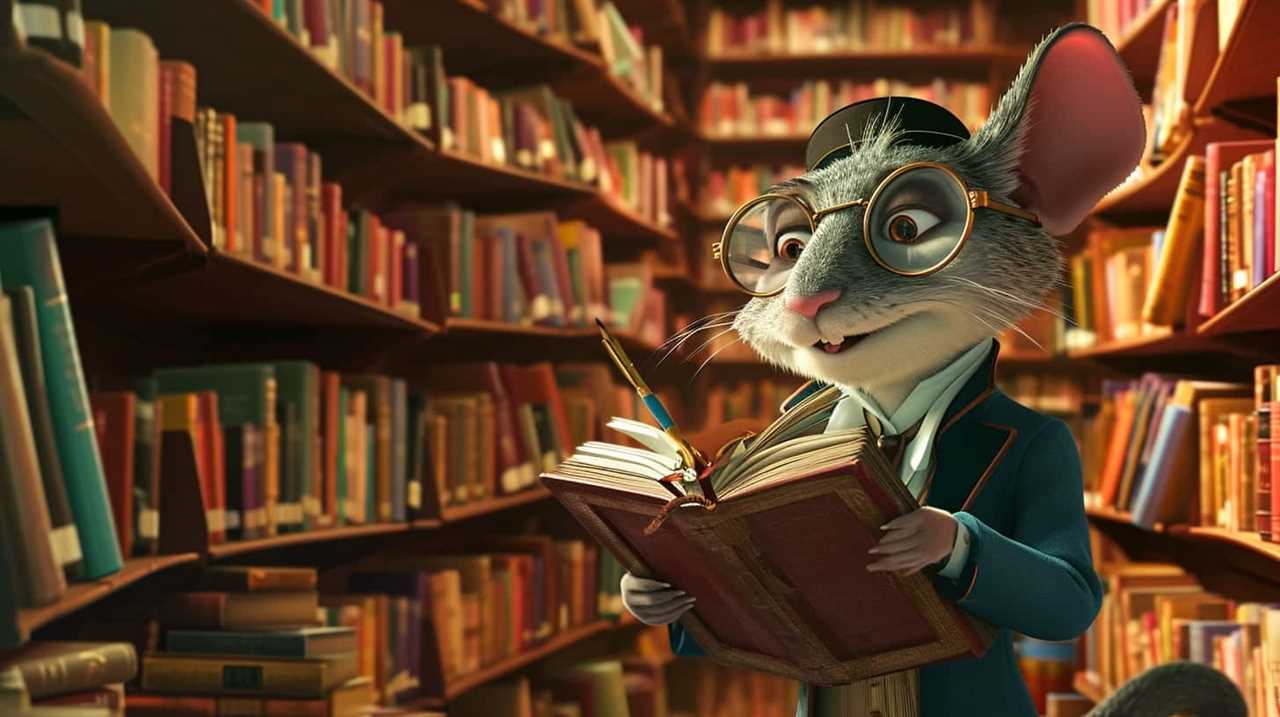
Shakespeare’s insults aren’t restricted to physical appearance, however. They delve into character flaws and personal weaknesses, exposing the vulnerabilities of their targets. With phrases like ‘Thou art a saucy, impudent, strumpet!’ or ‘Thou art as loathsome as a toad,’ Shakespeare demonstrates his ability to cut straight to the core of a person’s essence.
As we explore the world of Shakespearean insults, we can learn to infuse our banter with the elegance and wit of the Bard himself. So, don’t shy away from the opportunity to impress with your linguistic prowess.
As we transition into the next section on Lewis Carroll’s playful phrases, let’s continue our journey into the realm of literary banter, where words become weapons and wit reigns supreme.
Lewis Carroll’s Playful Phrases
Get ready to be enchanted by Lewis Carroll’s linguistic playfulness, as his clever phrases and witty wordplay transport you to a world of wonder and imagination.

From the whimsical nonsense of ‘Jabberwocky’ to the surreal conversations in ‘Alice’s Adventures in Wonderland,’ Carroll’s memorable quotes are like little sparks of brilliance that light up your banter.
His unique blend of humor and intellect leaves a lasting impact, reminding us of the power of language to entertain, provoke thought, and inspire creativity.
Carroll’s Linguistic Playfulness
Discover how Lewis Carroll’s playful phrases can add a touch of linguistic playfulness to your banter. Carroll’s wordplay and linguistic creativity are legendary, making his works a treasure trove of witty and inventive phrases that can elevate any conversation.
Here are four examples of Carroll’s linguistic playfulness:

- ‘Curiouser and curiouser’ – A delightful way to express your fascination and intrigue, adding a dash of whimsy to your banter.
- ‘I can’t go back to yesterday because I was a different person then’ – A profound reflection on the ever-changing nature of our identities, perfect for philosophical discussions.
- ‘Twinkle, twinkle, little bat! How I wonder what you’re at!’ – A whimsical phrase that captures the joy of curiosity and exploration.
- ‘We’re all mad here’ – A playful statement that invites others to embrace their quirks and celebrate their uniqueness.
Now, let’s delve into some memorable quotes from Carroll and explore how they can enrich your conversations.
Memorable Quotes From Carroll
Here are four memorable quotes from Carroll that showcase his playful phrases and can add a touch of whimsy to your conversations.
Lewis Carroll, known for his wordplay genius, left behind a literary legacy that continues to captivate readers today. His clever and imaginative use of language has inspired countless writers and thinkers, and his quotes are a testament to his unique style.
From Alice’s Adventures in Wonderland to Through the Looking-Glass, Carroll’s words dance off the page, inviting readers into a world of pure imagination. Whether it’s the nonsensical riddles of the Cheshire Cat or the witty banter between the Mad Hatter and Alice, Carroll’s playful phrases are sure to spark curiosity and bring a smile to your face.

Embrace the magic of Carroll’s literary genius and infuse your conversations with his whimsical charm.
The Impact of Carroll’s Wit
Carroll’s playful phrases, renowned for their clever wordplay and whimsical charm, have had a significant impact on literature and continue to captivate readers today. His wit, which seamlessly blends humor and intellect, has influenced modern comedy and the incorporation of wordplay in literature. Here are four ways in which Carroll’s wit has left an indelible mark:
- Puns that provoke laughter: Carroll’s skillful use of puns adds a layer of humor to his writing, creating moments of unexpected wit that leave readers chuckling.
- Language as a playground: Carroll’s ability to manipulate language and bend it to his will showcases the power of words and encourages writers to experiment with linguistic boundaries.
- Intellectual amusement: Carroll’s wit challenges readers to think beyond surface-level interpretations, pushing them to engage with his work on a deeper, more intellectual level.
- Enduring inspiration: Carroll’s playful phrases have set a precedent for future writers, inspiring them to infuse their own works with clever wordplay and whimsy.
Carroll’s wit hasn’t only entertained generations of readers but has also shaped the literary landscape, leaving an everlasting influence on both comedy and the use of wordplay in literature.
Dorothy Parker’s Sarcastic Remarks
When discussing sarcastic remarks in literature, a prime example can be found in Dorothy Parker’s witticisms. Known for her biting humor and sharp wit, Parker’s sarcastic remarks have left an indelible mark on the literary world. Her clever and acerbic observations capture the essence of human nature with a touch of cynicism and irony. In a world where subtlety is often lost, Parker’s words cut through the noise and offer a refreshing dose of truth wrapped in sarcasm.

To appreciate Parker’s talent for sarcastic remarks, let’s take a look at some of her most memorable quotes in the table below:
| "Brevity is the soul of lingerie." | |
| "You can lead a horticulture, but you can’t make her think." | |
| "Men seldom make passes at girls who wear glasses." | |
| "I’d rather have a bottle in front of me than a frontal lobotomy." |
Each of these quotes showcases Parker’s ability to deliver biting humor with impeccable timing and precision. Her words provoke thought and challenge societal norms, making her a source of inspiration for those seeking innovative and unconventional ideas.
Transitioning from Parker’s sarcastic remarks, we now turn our attention to Voltaire’s satirical observations.
Voltaire’s Satirical Observations
Are you curious about how Voltaire’s satirical observations in literature can add a touch of wit to your banter?

Voltaire, the renowned French philosopher and writer, was famous for his sharp wit and biting satire. His timeless satire continues to resonate with readers today, offering a unique perspective on society and human nature.
Here are four reasons why incorporating Voltaire’s witty observations into your conversations can elevate your banter to a new level:
- Insightful social commentary: Voltaire’s satire often targets the hypocrisy and absurdity of the society he lived in. By quoting his clever observations, you can shed light on the flaws and contradictions of contemporary culture, sparking thought-provoking discussions.
- Nuanced critique: Voltaire’s wit lies in his ability to deliver profound messages with a touch of humor. His satirical observations aren’t merely funny but also carry a deeper meaning, allowing you to engage in meaningful conversations while still entertaining your audience.
- Intellectual sophistication: By referencing Voltaire’s wit, you demonstrate a certain level of intellectual sophistication. It shows that you’re well-read and have a keen understanding of literature, making you stand out in any conversation.
- Timeless relevance: Despite being written centuries ago, Voltaire’s satire remains relevant today. His witty observations on power, religion, and human nature transcend time, making them a valuable addition to any banter.
Incorporating Voltaire’s timeless satire and witty observations into your conversations can’t only add a touch of wit but also stimulate intellectual discussion. So why not sprinkle some Voltaire in your banter and watch as it becomes more insightful, eloquent, and engaging?
Charles Dickens’ Comical Characters
To further enhance your banter with witty literature quotes, let’s delve into the comical characters created by Charles Dickens. Dickens, known for his vivid and larger-than-life characters, has gifted us with a plethora of comical personalities that never fail to entertain. From the bumbling Mr. Micawber in ‘David Copperfield’ to the eccentric Mr. Pickwick in ‘The Pickwick Papers,’ Dickens’ characters embody a unique blend of humor and charm. These characters, with their exaggerated quirks and idiosyncrasies, provide the perfect material for lighthearted banter.

In the world of literature, comical characters have always played a significant role. Just as Austen’s novels are brimming with witty exchanges and humorous situations, Dickens’ works abound with unforgettable characters that add a touch of comedy to his narratives. Their amusing antics and witty remarks serve as a source of amusement and provide a delightful escape from the seriousness of life.
When it comes to banter, Shakespeare’s witty insults are often the go-to choice. However, Dickens’ comical characters offer a refreshing alternative. Their humorous dialogues and amusing interactions can effortlessly inject humor into any conversation. So, next time you find yourself in need of a witty comeback or a playful remark, turn to Dickens’ comical characters for inspiration. Their charm and humor are sure to enliven your banter and leave your audience in stitches.
Incorporating quotes from Dickens’ comical characters into your banter not only showcases your literary knowledge but also adds a touch of sophistication and innovation. So, why settle for ordinary banter when you can infuse it with the charm and wit of Dickens’ comical characters? Embrace the world of literature and let these unforgettable personalities guide your humorous exchanges.
George Bernard Shaw’s Witty Dialogues
You can’t go wrong with George Bernard Shaw’s witty dialogues, as they bring a unique and clever perspective to your banter. Shaw, known for his sharp wit and social commentary, has left behind a legacy of thought-provoking plays and memorable characters.

If you’re looking to add some intellectual flair to your conversations, here are four reasons why Shaw’s dialogues are a must-have in your repertoire:
- Social Commentary: Shaw’s dialogues often serve as a platform for his insightful social commentary. Through his characters, he explores complex themes such as class inequality, gender roles, and political ideologies. By incorporating his dialogues into your banter, you not only entertain but also engage in meaningful discussions.
- Wit and Humor: Shaw’s wit is comparable to that of Oscar Wilde, famous for his sharp one-liners. Shaw’s dialogues are filled with clever wordplay, humorous banter, and unexpected twists. Incorporating these witty exchanges into your conversations will undoubtedly leave your audience amused and impressed.
- Intellectual Stimulation: Shaw’s dialogues are intellectually stimulating, as they challenge conventional thinking and encourage critical analysis. His characters engage in thought-provoking debates, offering different perspectives on various topics. By incorporating Shaw’s dialogues into your banter, you create an environment that fosters innovation and intellectual growth.
- Timeless Relevance: Despite being written over a century ago, Shaw’s dialogues remain relevant today. His exploration of human nature, societal norms, and moral dilemmas transcends time and resonates with modern audiences. By incorporating Shaw’s dialogues into your banter, you infuse your conversations with a timeless quality that’s both refreshing and thought-provoking.
Incorporating George Bernard Shaw’s witty dialogues into your banter is a surefire way to elevate your conversations. With their social commentary, wit, intellectual stimulation, and timeless relevance, Shaw’s dialogues will undoubtedly bring a unique and clever perspective to your interactions. So, go ahead and sprinkle some Shaw into your banter, and watch as it becomes a delightful blend of entertainment and enlightenment.
P.G. Wodehouse’s Hilarious One-liners
Prepare to be delighted by the comedic genius of P.G. Wodehouse and his arsenal of hilarious one-liners.
As you explore his works, you’ll encounter memorable phrases that effortlessly tickle your funny bone, leaving you in stitches.

Wodehouse’s witty banter has an undeniable impact, adding a touch of charm and amusement to any conversation.
Memorable Comedic Phrases
P.G. Wodehouse’s hilarious one-liners will inject humor into your banter with their memorable comedic phrases. These witty gems from the master of comedy will have you chuckling and quoting them for years to come.
Here are four of Wodehouse’s most delightful and memorable comedic phrases:
- ‘He had just about enough intelligence to open his mouth when he wanted to eat, but certainly no more.’ This clever line shows Wodehouse’s knack for poking fun at characters with a touch of self-deprecating humor.
- ‘She looked as if she’d been poured into her clothes and had forgotten to say ‘when’.’ Wodehouse’s gift for vivid descriptions shines through in this hilarious observation.
- ‘I always advise people never to give advice.’ Wodehouse’s wit often reveals a hint of irony, as demonstrated in this clever twist on the idea of giving advice.
- ‘I’m not absolutely certain of my facts, but I rather fancy it’s Shakespeare who says that it’s always just when a fellow is feeling particularly braced with things in general that Fate sneaks up behind him with the bit of lead piping.’ Wodehouse’s ability to blend humor with philosophical insights is showcased in this witty reflection on life’s unexpected twists.
With these memorable comedic phrases at your disposal, you’ll be sure to bring laughter to any conversation.

Impact of Witty Banter
Injecting P.G. Wodehouse’s hilarious one-liners into your banter will leave a lasting impact, bringing laughter and wit to any conversation. The role of humor in literature can’t be understated, as it adds depth and entertainment to storytelling.
Wit, in particular, has a significant impact on the reader or listener, elevating the narrative and making it more memorable. Wodehouse’s mastery of wit is unparalleled, and his one-liners have become iconic for their ability to elicit laughter and spark joy.
By incorporating his humorous phrases into your own banter, you not only pay homage to a literary genius but also infuse your conversations with a touch of brilliance. The impact of wit in storytelling lies in its ability to captivate and engage, creating a connection between the audience and the narrative.
Roald Dahl’s Whimsical Wordplay
One of Roald Dahl’s most enchanting qualities as a writer is his ability to infuse his stories with a delightful and whimsical wordplay. His imaginative storytelling and whimsical language transport readers to extraordinary worlds where anything is possible.

Here are four reasons why Roald Dahl’s wordplay is so captivating:
- Playful Vocabulary: Dahl’s use of inventive and playful vocabulary adds a touch of magic to his stories. From ‘scrumdiddlyumptious’ to ‘whizzpopping,’ his words leap off the page and tickle the imagination.
- Puns and Wordplay: Dahl masterfully weaves puns and wordplay into his stories, creating moments of surprise and amusement. His clever use of language invites readers to engage with the text in a playful and interactive way.
- Vivid Descriptions: Through vivid descriptions, Dahl paints vivid pictures in the minds of his readers. His whimsical language brings to life the most fantastical characters, settings, and situations, making the reading experience truly immersive.
- Humorous Dialogues: Dahl’s characters engage in witty and humorous dialogues that are both entertaining and insightful. His clever word choices and humorous exchanges add depth and charm to his narratives.
Roald Dahl’s whimsical wordplay is a testament to his creativity and imagination. His ability to craft stories that delight and engage readers through language is what sets him apart as a truly innovative writer.
Frequently Asked Questions
How Can I Incorporate Oscar Wilde’s Clever Comebacks Into My Everyday Conversations?
You can effortlessly bring Oscar Wilde’s clever comebacks into your everyday conversations. Incorporate his wit by responding to mundane remarks with a touch of literary brilliance, leaving your audience in awe.
What Are Some of Mark Twain’s Most Famous Humorous Quotes?
Mark Twain’s humor has had a profound impact on modern comedy. His witty and timeless quotes resonate because they reveal universal truths in a clever and relatable way. His influence continues to inspire innovative humor today.

How Can I Use Jane Austen’s Sharp Wit to Make My Banter More Engaging?
Want to make your banter more engaging? Tap into Jane Austen’s sharp wit. Apply her clever retorts to modern conversations. Incorporate her biting sarcasm to liven up your banter. Engage with insight, eloquence, and nuance.
What Are Some Shakespearean Zingers That Can Impress Others?
Want to shut down rude comments? Shakespeare’s insults are your weapons of choice. Impress others with clever literary quotes that showcase your wit and intelligence. Get ready to engage in banter like never before.
How Can I Incorporate Lewis Carroll’s Playful Phrases Into My Banter?
To incorporate Lewis Carroll’s playful phrases into your banter, embrace wordplay and literary humor. By weaving his clever language into your conversations, you’ll infuse a touch of whimsy and intellectual charm that is sure to impress.
Conclusion
In this delightful journey through the world of literature, you have been introduced to an array of witty quotes that can add sparkle to your banter.

From Oscar Wilde’s clever comebacks to Roald Dahl’s whimsical wordplay, these literary gems offer a treasure trove of amusement.
By incorporating these quotes into your conversations, you can effortlessly elevate your wit and charm.
So, let these words become your playful companions, and watch as your banter takes on a whole new level of brilliance.
Lauren’s talent in writing is matched by her passion for storytelling. Her love for books and deep understanding of culture and entertainment add a distinct flavor to her work. As our media and press contact, Lauren skillfully bridges the gap between afterQuotes and the broader media landscape, bringing our message to a wider audience.
Literature Quotations
Why Not Use Hilarious Literary Quotes in Speeches?

Are you weary of delivering dull, unmemorable presentations? Why not add some excitement with funny quotes from literature?
Imagine starting your speech with Mark Twain’s witty remark, ‘The secret of getting ahead is getting started. The secret of getting started is breaking your complex overwhelming tasks into small manageable tasks, and then starting on the first one.’
Not only will this grab your audience’s attention, but it will also infuse your speech with creativity and innovation. By incorporating funny lines from classic literature, you can entertain, engage, and inspire your listeners in a unique way.
So, why settle for boring speeches when you can captivate your audience with hilarious literary quotes? It’s time to unleash your inner comedian and make your speeches memorable and enjoyable.

Key Takeaways
- Grabs audience’s attention
- Infuses creativity and innovation into speeches
- Entertains, engages, and inspires listeners
- Makes speeches memorable and enjoyable
Classic Comedic Lines From Literature
You should frequently incorporate classic comedic lines from literature into your speeches. Not only will this add a touch of wit and humor, but it will also engage your audience in a unique and unexpected way. Imagine quoting unexpectedly funny lines from famous poets or incorporating satirical quotes that pack a punch. By doing so, you’ll captivate your audience’s attention and leave a lasting impression.
Literature is filled with hidden gems of comedy that can breathe life into any speech. Take, for example, Oscar Wilde’s famous line, ‘I can resist everything except temptation.’ This witty remark not only elicits laughter but also serves as a reminder of our own human weaknesses. By incorporating such lines into your speeches, you bring a fresh and innovative approach that sets you apart from the crowd.
Using classic comedic lines from literature not only adds humor but also demonstrates your intellectual prowess. It shows that you’re well-read and knowledgeable about the richness of literary works. This combination of wit and intelligence is sure to leave a lasting impact on your audience.
Shakespeare’s Humorous Gems
Continuing the exploration of classic comedic lines from literature, let’s now delve into Shakespeare’s humorous gems.

Shakespeare’s comedic genius is unparalleled, and his works are filled with witty lines that never fail to elicit laughter. Here are five examples of his humorous brilliance:
- ‘I would challenge you to a battle of wits, but I see you’re unarmed.’ – Much Ado About Nothing
- ‘Some are born great, some achieve greatness, and some have greatness thrust upon them.’ – Twelfth Night
- ‘The course of true love never did run smooth.’ – A Midsummer Night’s Dream
- ‘All the world’s a stage, and all the men and women merely players.’ – As You Like It
- ‘To be, or not to be: that’s the question.’ – Hamlet
These lines showcase Shakespeare’s ability to captivate audiences with his clever wordplay and insightful observations. They highlight the power of laughter in literature, as humor allows us to connect with characters and experience their stories in a more enjoyable and memorable way.
Now, let’s transition to the next section where we’ll explore more laugh-out-loud moments in novels.
Laugh-Out-Loud Moments in Novels
Get ready to laugh out loud as we explore the comedic genius found within the pages of novels.
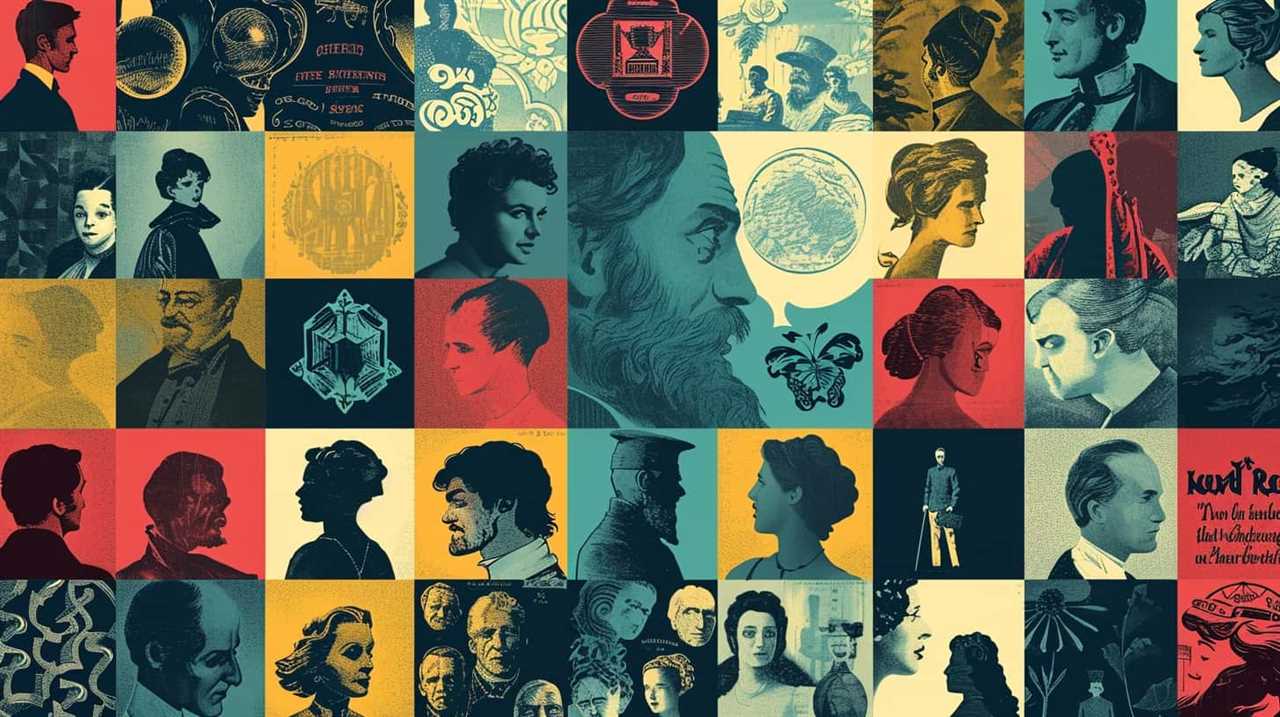
From unexpected comedic relief that breaks the tension to memorable funny plot twists that keep us hooked, these laugh-out-loud moments add a delightful flavor to storytelling.
Humor has the power to captivate readers, creating a memorable and enjoyable experience that keeps them coming back for more.
Unexpected Comedic Relief
During your speech, incorporate unexpected comedic relief by including hilarious literary quotes. Adding moments of laughter to your speech can captivate your audience and create a memorable experience. Here are five examples of how unexpected comedic timing can enhance your message:
- ‘I am not young enough to know everything.’ – Oscar Wilde
- ‘The only way to get rid of a temptation is to yield to it.’ – Oscar Wilde
- ‘I went to the bookstore and asked the saleswoman, ‘Where’s the self-help section?’ She said if she told me, it would defeat the purpose.’ – Steven Wright
- ‘I told my wife she was drawing her eyebrows too high. She seemed surprised.’ – Rodney Dangerfield
- ‘I’m sorry, if you were right, I’d agree with you.’ – Robin Williams
Incorporating these humorous quotes will infuse your speech with the power of laughter and leave a lasting impact on your audience.

Now, let’s delve into the next section and explore memorable funny plot twists.
Memorable Funny Plot Twists
To fully engage your audience, incorporate hilarious literary quotes into your speeches and explore memorable plot twists that will leave them laughing out loud.
Memorable funny plot twists are a hallmark of unconventional comedic storytelling. They catch readers off guard, turning the story in unexpected and humorous directions. The art of comedic timing is essential in these moments, as the element of surprise plays a crucial role in delivering the punchline.
Whether it’s a case of mistaken identity, a sudden revelation, or a cleverly crafted twist, these plot twists create laugh-out-loud moments that are both entertaining and memorable.
![]()
Humor’s Impact on Storytelling
Incorporating hilarious literary quotes into your speeches adds a touch of humor that enhances the impact of laugh-out-loud moments in novels. Humor plays a significant role in character development, allowing readers to connect with the characters on a deeper level and making them more relatable. It adds depth and complexity to their personalities, making them feel more human.
Additionally, the power of comedic timing in storytelling can’t be underestimated. Well-timed jokes and witty one-liners can create a memorable reading experience, keeping readers engaged and entertained throughout the narrative.
Quirky Quotes From Famous Authors
When crafting your speeches, consider utilizing quirky quotes from famous authors to add a touch of humor and originality to your delivery. Famous authors have a knack for crafting unexpectedly funny lines in poetry and prose, and incorporating these quotes into your speeches can engage the audience and leave a lasting impression.
To give you an idea of the kind of humor you can inject into your speeches, here are a few examples of quirky quotes from famous authors:

| Famous Author | Quirky Quote |
|---|---|
| Mark Twain | "The reports of my death are greatly exaggerated." |
| Oscar Wilde | "I can resist everything except temptation." |
| Douglas Adams | "I love deadlines. I love the whooshing noise they make as they go by." |
These quotes not only bring a sense of wit and humor to your speeches but also make them more memorable. By using quotes from famous authors, you tap into their literary prowess and demonstrate your own creativity and knowledge.
Now that you have an idea of how quirky quotes can enhance your speeches, let’s delve into the next section about wit and humor in literary speeches.
Wit and Humor in Literary Speeches
Why limit yourself to serious and boring speeches when you can inject some literary wit and humor? Incorporating hilarious literary quotes in your speeches can make a lasting impact on your audience.
These moments of comedic relief not only engage your listeners but also leave them with memorable experiences that they’ll be more likely to remember and appreciate.

Impact of Literary Wit
Utilizing literary wit in your speeches can have a profound impact on engaging and entertaining your audience. By incorporating clever and humorous literary quotes, you can add depth to your message while captivating your listeners. Here are five ways in which literary wit can evoke emotion and leave a lasting impression:
- Surprise: Unexpected wit catches your audience off guard, creating a sense of delight and amusement.
- Relatability: Clever wordplay or satirical references can make your audience feel understood and connected.
- Intellectual stimulation: Thought-provoking humor challenges your audience’s perspectives and encourages critical thinking.
- Emotional resonance: Humorous anecdotes or witty observations can evoke laughter, creating a positive and memorable experience.
- Memorable quotes: Quoting famous literary figures adds credibility and sophistication to your speech, leaving a lasting impact.
Memorable Comedic Moments
To continue captivating your audience and adding depth to your message, incorporate memorable comedic moments by infusing wit and humor from literary quotes. Funny quotes in speeches have the power to entertain, engage, and leave a lasting impression on your listeners.
By using comedic timing in literature, you can create moments of laughter that not only break the ice but also help to convey your message in a more engaging and relatable way. A well-placed funny quote can lighten the mood, make complex ideas more accessible, and connect with your audience on a deeper level.
Engaging the Audience
To further engage your audience and add an extra layer of wit and humor to your literary speeches, incorporate clever and comedic quotes from renowned authors. Using engaging storytelling and comedic timing, these quotes won’t only captivate your audience, but also evoke a range of emotions, from laughter to introspection. Consider incorporating the following quotes:

- ‘The only way to get rid of a temptation is to yield to it.’ – Oscar Wilde
- ‘The difference between genius and stupidity is; genius has its limits.’ – Albert Einstein
- ‘I am so clever that sometimes I don’t understand a single word of what I’m saying.’ – Oscar Wilde
- ‘Always forgive your enemies; nothing annoys them so much.’ – Oscar Wilde
- ‘I can resist everything except temptation.’ – Oscar Wilde
By incorporating these clever and comedic quotes into your speeches, you’ll keep your audience engaged and entertained.
Now, let’s explore unexpectedly funny lines in poetry.
Unexpectedly Funny Lines in Poetry
You can easily incorporate unexpectedly funny lines from poetry into your speeches, adding a touch of humor and entertainment to captivate your audience.
Poetry, often associated with deep emotions and profound thoughts, can also surprise us with moments of unexpected humor. Sonnets, for example, known for their structured and serious nature, occasionally hide clever and witty lines that can bring a smile to your listeners’ faces.

Take Shakespeare’s Sonnet 130, for instance. In this sonnet, the poet humorously undermines the conventional beauty standards of his time, comparing his beloved to unflattering images. Lines like ‘My mistress’ eyes are nothing like the sun’ and ‘Coral is far more red than her lips’ red’ provide a comedic relief within the context of a love poem.
Even in tragic poetry, humor can be found. In Edgar Allan Poe’s ‘The Raven,’ the speaker’s obsession with the titular bird takes on a darkly comedic tone. The repetition of the raven’s famous response, ‘Nevermore,’ becomes almost comical in its absurdity, offering a momentary break from the haunting atmosphere.
By incorporating these unexpectedly funny lines into your speeches, you infuse them with a dash of innovation and surprise. Your audience will appreciate the unexpected twist and find themselves more engaged and entertained.
Hilarious One-Liners From Plays
Incorporate uproarious one-liners from plays to add a burst of laughter to your speeches and keep your audience thoroughly entertained. Tap into the hilarity of modern comedies and the wit of contemporary novels to inject humor and innovation into your presentations.

Here are five hilarious quotes from plays that are sure to evoke laughter and engage your audience:
- ‘The only way to get rid of temptation is to yield to it.’ – Oscar Wilde, ‘The Importance of Being Earnest’
- ‘All the world’s a stage, and all the men and women merely players.’ – William Shakespeare, ‘As You Like It’
- ‘I’m not a fighter, I’m a lover. And besides, my weapon of choice is sarcasm.’ – Christopher Durang, ‘Vanya and Sonia and Masha and Spike’
- ‘The fool doth think he’s wise, but the wise man knows himself to be a fool.’ – William Shakespeare, ‘As You Like It’
- ‘I regard the theatre as the greatest of all art forms, the most immediate way in which a human being can share with another the sense of what it’s to be a human being.’ – Oscar Wilde
Incorporating these witty lines into your speeches won’t only entertain your audience but also showcase your creativity and ability to think outside the box. So go ahead and sprinkle some laughter into your presentations with these hilarious one-liners from plays.
Satirical Quotes That Pack a Punch
Add a touch of satire to your speeches with these clever and biting literary quotes. Satirical quotes have the power to engage the audience, provoke thought, and deliver a punch. They allow you to make a point while entertaining your listeners.
Oscar Wilde once said, ‘I can resist everything except temptation.’ This quote, with its witty wordplay, can be used to highlight the human struggle with self-control and the absurdity of our desires.

Mark Twain, known for his sharp wit, once remarked, ‘The only way to keep your health is to eat what you don’t want, drink what you don’t like, and do what you’d rather not.’ This quote can be used to highlight the irony of unhealthy habits and the sacrifices we make for our well-being.
Another powerful satirical quote comes from George Bernard Shaw, who said, ‘The single biggest problem in communication is the illusion that it has taken place.’ This quote can be used to highlight the importance of effective communication and the common misunderstandings that arise.
Humorous Anecdotes From Literary Works
To infuse humor into your speeches, explore the world of literature for hilarious anecdotes that will captivate your audience. Classic comedic quotes and humorous plot twists can add a touch of wit and entertainment to your presentations. Consider incorporating the following anecdotes into your next speech:
- In Mark Twain’s ‘The Adventures of Tom Sawyer,’ Tom tricks his friends into painting a fence for him by convincing them that it’s an enjoyable task. This clever manipulation showcases Tom’s mischievous nature and provides a humorous twist to the story.
- In Jane Austen’s ‘Pride and Prejudice,’ Mr. Collins proposes to Elizabeth Bennet, despite her clear disinterest. The awkwardness of the situation and Elizabeth’s witty rejection make for a comical scene that can lighten the mood during your speech.
- In Oscar Wilde’s ‘The Importance of Being Earnest,’ the characters create fictitious identities to escape their responsibilities. This absurd and farcical plot twist adds an element of hilarity to the play and can serve as a source of inspiration for your own humorous anecdotes.
- In Douglas Adams’ ‘The Hitchhiker’s Guide to the Galaxy,’ the protagonist, Arthur Dent, discovers that Earth is about to be destroyed to make way for a hyperspace bypass. This unexpected and ludicrous turn of events provides numerous comedic moments throughout the novel.
- In ‘Alice’s Adventures in Wonderland’ by Lewis Carroll, Alice encounters the Cheshire Cat, known for its mischievous grin and cryptic remarks. The absurdity and whimsical nature of the Cheshire Cat’s interactions with Alice can bring a sense of playfulness to your speech.
Unforgettable Comedic Moments in Books
Explore the uproarious scenes and comedic surprises that make books unforgettable. Books have the power to transport us into a world of laughter and amusement, where unconventional comedic devices and impeccable comedic timing bring joy to our hearts. From slapstick humor to witty one-liners, authors have masterfully crafted moments that leave us in stitches.

One such example can be found in Mark Twain’s ‘The Adventures of Huckleberry Finn,’ where Huck and Jim’s attempts to escape their pursuers often lead to hilarious mishaps. Twain’s use of irony and satire adds an extra layer of humor to the story, making it a timeless comedic masterpiece.
In Jane Austen’s ‘Pride and Prejudice,’ the sharp and witty banter between Elizabeth Bennet and Mr. Darcy keeps us entertained throughout the novel. Their verbal sparring and misunderstandings create comedic tension, highlighting Austen’s clever writing and comedic timing.
Douglas Adams’ ‘The Hitchhiker’s Guide to the Galaxy’ takes comedy to a whole new level with its absurd situations and offbeat humor. Adams’ use of unexpected twists and turns keeps readers on their toes, ensuring that every page is filled with laughter.
Unforgettable comedic moments in books are a testament to the innovative and creative minds of authors. These moments not only provide entertainment but also serve as a reminder of the power of laughter in our lives. So, the next time you dive into a book, be prepared to be swept away by the unconventional comedic devices and impeccable comedic timing that literature has to offer.

Frequently Asked Questions
How Can I Incorporate Hilarious Literary Quotes Into My Speeches Effectively?
To effectively incorporate hilarious literary quotes into your speeches, use them as icebreakers to capture your audience’s attention. Humor can be a powerful tool to engage and add levity to serious topics, making your speech more memorable and innovative.
What Are Some Examples of Classic Comedic Lines From Literature?
Looking to add some humor to your speeches? Look no further than classic comedic lines from literature. Shakespeare’s plays are full of famous humorous moments that are sure to engage and entertain your audience.
Are There Any Famous Humorous Moments in Shakespeare’s Plays?
Shakespeare’s comedic genius is unparalleled. His plays are filled with memorable comedic moments that will leave your audience in stitches. Why not incorporate these hilarious literary quotes into your speeches?
Can You Share Some Witty and Funny Quotes From Well-Known Authors?
Want to add some pizzazz to your speeches? Incorporate witty and funny quotes from renowned authors. Humor is crucial in public speaking, as it captivates and entertains your audience. Plus, using literary quotes adds sophistication and charm to your delivery.

How Can I Use Humor and Wit in My Literary Speeches to Engage the Audience?
To engage your audience in your literary speeches, use humor and wit. Incorporate hilarious literary quotes that connect with the crowd. The witty references will captivate their attention and make your speech memorable.
Conclusion
So, the next time you’re preparing a speech, why not sprinkle in some hilarious literary quotes? Not only will it add a touch of wit and humor to your delivery, but it will also leave a lasting impression on your audience.
As the saying goes, ‘A little laughter goes a long way.’ By incorporating these comedic gems from literature, you’ll be sure to captivate and entertain your listeners, making your speech truly unforgettable.
So go ahead, embrace the power of literary humor and watch your audience’s laughter light up the room.

Lauren’s talent in writing is matched by her passion for storytelling. Her love for books and deep understanding of culture and entertainment add a distinct flavor to her work. As our media and press contact, Lauren skillfully bridges the gap between afterQuotes and the broader media landscape, bringing our message to a wider audience.
Literature Quotations
Wisdom-Infused Quotes: Life Lessons From Literature

Are you prepared to start a quest for enlightenment, where knowledge streams like water through the pages of books? Introducing ‘Wisdom-Infused Quotes: Life Lessons From Literature.’
In this innovative collection, you will discover a treasure trove of profound insights and timeless teachings, all distilled from the minds of literary geniuses. Through the power of second person narration, we will guide you through the transformative lessons that await within these pages.
From the resilience of a phoenix rising from ashes, to the strength found in embracing vulnerability, each quote will ignite your imagination and inspire you to think differently.
So, grab a cup of innovation and let the wisdom of literature illuminate your path to personal growth and fulfillment.
Key Takeaways
- Literature offers timeless teachings and profound insights into various aspects of life.
- Quotes from literature provide wisdom and guidance for personal growth and self-reflection.
- Reading literature cultivates empathy and understanding, allowing us to connect with diverse characters and expand our perspectives.
- Kindness, compassion, and empathy are emphasized in literature, teaching us the importance of these qualities in creating a supportive and meaningful society.
The Power of Resilience
Discover the strength within you to overcome life’s challenges with resilience. Resilience is the ability to bounce back from adversity, to adapt, and to thrive in the face of obstacles. It’s a quality that allows individuals to not only survive but also to flourish in the midst of difficult circumstances. Resilience is a crucial trait to possess in today’s fast-paced and ever-changing world. It’s the key that unlocks the door to innovation and success.
In order to cultivate resilience, one must first understand that setbacks and failures are inevitable. They aren’t a reflection of your worth or abilities, but rather opportunities for growth and learning. Embrace these challenges as stepping stones towards a stronger and more resilient self.
Resilience also requires a mindset shift. Instead of dwelling on past failures or getting caught up in self-doubt, focus on the future and the possibilities that lie ahead. Develop a positive and optimistic outlook, believing in your ability to overcome any obstacle that comes your way.
Building resilience also involves taking care of yourself physically, emotionally, and mentally. Engage in activities that bring you joy and fulfillment, surround yourself with supportive and uplifting people, and practice self-care regularly.
Embracing Change and Transformation
Embrace the inevitability of change and embrace the transformative power it holds. Change is a constant in life, and while it may be challenging at times, it is through embracing change that we experience personal growth and transformation. As we adapt to new circumstances and perspectives, we gain a deeper understanding of ourselves and the world around us.
Change allows us to break free from our comfort zones and explore new possibilities. It pushes us to challenge our beliefs, question our assumptions, and discover hidden strengths within ourselves. Embracing change opens doors to opportunities and allows us to evolve into the best versions of ourselves.
To further illustrate the importance of embracing change and its transformative effects, let’s consider the following three aspects:
| Embracing Change | Personal Growth | Transformation |
|---|---|---|
| Adaptability | Self-awareness | Inner strength |
| Open-mindedness | Learning mindset | Resilience |
| Courage | Expanding horizons | Authenticity |
These three aspects are interconnected and contribute to our overall personal growth and transformation. By embracing change, we cultivate adaptability, open-mindedness, and courage, which in turn foster self-awareness, a learning mindset, and the expansion of our horizons. Ultimately, this leads to the development of inner strength, resilience, and authenticity.

In the journey of personal growth, embracing change is the catalyst that propels us forward. It allows us to shed old patterns, embrace new possibilities, and fully realize our potential. By embracing change, we find the strength to face vulnerability head-on and discover the transformative power it holds.
Finding Strength in Vulnerability
As you navigate the journey of personal growth and transformation by embracing change and its transformative effects, it’s essential to recognize the inherent strength that lies within vulnerability. In a world that often values invulnerability and emotional armor, it takes courage to embrace vulnerability and allow ourselves to be seen, heard, and felt.
Contrary to what we may believe, vulnerability isn’t a sign of weakness but rather a testament to our inner strength. Vulnerability allows for authentic connections. When we open ourselves up and share our true selves with others, we create the opportunity for genuine connections. It’s through vulnerability that we can cultivate deep and meaningful relationships, as we invite others to truly see and understand us.
Vulnerability fosters personal growth. By embracing vulnerability, we allow ourselves to step outside of our comfort zones and explore unknown territories. It’s through these experiences that we can grow and develop as individuals, discovering new strengths and capabilities we never knew we possessed.
Vulnerability builds resilience. When we allow ourselves to be vulnerable, we develop resilience in the face of adversity. It’s through embracing vulnerability that we learn to face our fears head-on, navigate through challenges, and bounce back from setbacks with newfound strength and determination.
Embracing vulnerability isn’t an easy task, but it’s a powerful one. It requires us to confront our fears and let go of the need for control, but in doing so, we unlock our inner strength and open ourselves up to a world of growth, connection, and resilience.
Lessons in Love and Heartbreak
Navigating the complexities of love and the pain of heartbreak can be a transformative journey of self-discovery. Love, with its multitude of emotions and vulnerabilities, has the power to shape us in profound ways. It teaches us the importance of forgiveness, both towards ourselves and others, and the healing that comes with it.
Love, at its core, requires trust and vulnerability. It’s in these moments of vulnerability that we open ourselves up to the possibility of heartbreak. When love fails and our hearts shatter into a million pieces, it may seem impossible to find a way forward. But it’s through the lessons in forgiveness that we begin to heal.
Forgiving someone who’s hurt us isn’t easy. It requires strength and courage to let go of the pain and resentment. Yet, in doing so, we free ourselves from the shackles of heartbreak and allow ourselves to move on. Forgiveness isn’t about condoning the actions that caused the pain, but rather about liberating ourselves from their grip.
Healing from heartbreak is a process that takes time and self-reflection. It’s about acknowledging our own emotions and allowing ourselves to grieve. Through this process, we learn to be kind to ourselves, to be patient with our healing, and to embrace the lessons that heartbreak has taught us.
Love and heartbreak are intertwined, and they both have the power to shape us. It’s in the lessons of forgiveness and healing that we find the strength to move forward, to grow, and to find love again.
Navigating the Journey of Self-Discovery
Through the exploration of your own thoughts and experiences, you can uncover the depths of self-discovery. The journey of self-discovery is an intricate and transformative process that leads to personal growth and development. It’s a path filled with introspection, reflection, and exploration of one’s innermost desires and values.
As you embark on this journey, there are certain key aspects to keep in mind:
- Embrace vulnerability: To truly discover yourself, it’s crucial to embrace vulnerability and open yourself up to new experiences and perspectives. Only by allowing yourself to be vulnerable can you break through the barriers that hinder personal growth.
- Seek discomfort: Growth rarely occurs within the confines of comfort. To navigate the journey of self-discovery, you must be willing to step outside your comfort zone and challenge yourself. Embrace uncertainty and embrace the unknown, for it’s in these moments that you’ll truly learn and grow.
- Practice self-reflection: Self-reflection is an essential tool on the path of self-discovery. Take the time to pause, reflect, and examine your thoughts, emotions, and actions. By gaining a deeper understanding of yourself, you can make conscious choices that align with your values and aspirations.
Embarking on the journey of self-discovery requires courage, curiosity, and an unwavering commitment to personal growth. It’s through this exploration of the self that you can uncover hidden truths, unleash your potential, and cultivate a life of authenticity and fulfillment.
Embracing the Beauty of Imperfection
Embracing the beauty of imperfection is a profound journey that reminds you of the inherent humanity within us all.
It’s a recognition that flaws and mistakes aren’t something to be ashamed of, but rather, an opportunity for growth and self-discovery.
Perfectly Imperfect: Embracing Flaws
Embrace your flaws and find the beauty in imperfection. In a world that constantly pressures us to conform, embracing our flaws is an act of rebellion. It’s a declaration of self-acceptance and a celebration of our uniqueness. By embracing our flaws, we acknowledge that perfection is an illusion and that it’s our imperfections that make us truly authentic.
- Embracing uniqueness: Our flaws are what set us apart from the crowd. They make us unique individuals with our own stories and experiences. Embracing our flaws allows us to fully express ourselves and showcase our individuality.
- Celebrating authenticity: When we embrace our flaws, we’re embracing our true selves. We’re no longer hiding behind a facade of perfection, but rather embracing our authentic selves. This authenticity is what draws others to us and creates genuine connections.
- Finding inner strength: Embracing our flaws requires courage and vulnerability. It isn’t an easy path, but it’s one that leads to inner strength and self-confidence. By accepting and embracing our flaws, we’re able to grow and thrive, becoming the best versions of ourselves.
In a world obsessed with perfection, embracing our flaws is a powerful act of self-love and self-empowerment. It’s through our imperfections that we find true beauty and meaning in our lives.
Finding Beauty in Imperfections
Discover the profound beauty that lies within imperfections, allowing them to shape and define your unique journey of self-discovery. Embracing the beauty of imperfection is a powerful act of self-acceptance, one that celebrates the uniqueness of your being. It is through our flaws and quirks that we find the true essence of who we are, and it is in these imperfections that we discover our greatest strengths and lessons in self-acceptance.
In a world that often values perfection, it is important to remember that perfection is an illusion. It is the imperfections that make us human, that make us relatable and authentic. Just like a piece of art, our imperfections add depth and character to our lives. They tell the story of our journey, the triumphs and the struggles, the lessons learned along the way.
To illustrate the beauty of imperfection, consider the following table:
| Imperfection | Lesson |
|---|---|
| Scars | Resilience |
| Quirks | Individuality |
| Mistakes | Growth |
| Insecurities | Empathy |
Each imperfection holds a lesson, a reminder that our flaws are not limitations but opportunities for growth. Embrace these imperfections, for they are the brushstrokes that create the masterpiece of your life. Celebrate your uniqueness and let it shine through your imperfections, for it is in accepting and loving ourselves completely that we find true beauty.
Embracing Imperfections, Embracing Life
Find the true joy and liberation that comes from fully accepting and embracing the beauty found within imperfections. Embracing vulnerability and learning from mistakes are essential components of a fulfilling life.
- Embracing vulnerability opens the door to genuine connections and authentic experiences. When we allow ourselves to be vulnerable, we create space for meaningful relationships, personal growth, and deep empathy. It’s through vulnerability that we truly connect with others and find our own strength.
- Learning from mistakes is a vital part of personal development. Mistakes provide valuable lessons that shape our character and guide us towards growth. By embracing our imperfections and viewing them as opportunities for growth, we can cultivate resilience and wisdom. Each mistake becomes a stepping stone on our journey toward self-improvement.
- Embracing imperfections allows us to fully embrace life. It means letting go of unrealistic expectations and accepting ourselves as we are, flaws and all. By embracing the beauty of imperfection, we free ourselves from the burden of perfectionism and open ourselves up to a world of possibilities.
Overcoming Obstacles and Adversity
You can conquer any challenge that comes your way. Life is filled with obstacles and adversity, but with the right mindset and resilience, you have the power to overcome them. Literature offers us valuable insights and wisdom on how to navigate these challenges, teaching us important life lessons that can inspire and empower us.
Below is a table that showcases some insightful quotes from literature that can guide us in overcoming obstacles and building resilience:
| Quote | Author |
|---|---|
| "It is not the strength of the body that counts, but the strength of the spirit." | J.R.R. Tolkien |
| "The only way out is through." | Robert Frost |
| "When one door of happiness closes, another opens; but often we look so long at the closed door that we do not see the one which has been opened for us." | Helen Keller |
| "Success is not final, failure is not fatal: It is the courage to continue that counts." | Winston Churchill |
These quotes remind us that strength lies within us, that perseverance is key, and that failure is just a stepping stone towards success. By embracing these lessons, we can face any challenge head-on, overcome adversity, and emerge stronger and wiser.
As we delve into the importance of compassion and empathy in the next section, let’s remember that these qualities play a crucial role in supporting others as they overcome their own obstacles and adversities.
The Importance of Compassion and Empathy
As you continue exploring the insights and wisdom from literature on overcoming obstacles and adversity, it becomes evident that the importance of compassion and empathy can’t be underestimated. Literature has long served as a mirror to our own humanity, offering profound reflections on the power of kindness and the necessity of cultivating empathy. Through the words of the great writers, we’re reminded that compassion isn’t just an abstract concept but a transformative force that has the potential to heal, bridge divides, and bring about positive change.
- Kindness isn’t weakness: In a world often driven by competition and individualism, it’s easy to dismiss kindness as a sign of vulnerability or naivety. However, literature teaches us that kindness isn’t a weakness, but a strength that requires courage and empathy. It’s through acts of kindness that we can uplift others, inspire compassion, and create a more inclusive and supportive society.
- Empathy fosters connection: Literature has the power to transport us into the hearts and minds of characters from different backgrounds, cultures, and experiences. By immersing ourselves in these narratives, we can develop a deep sense of empathy, enabling us to understand and connect with others on a profound level. Through empathy, we can break down barriers, bridge divides, and foster a sense of shared humanity.
- Compassion as a catalyst for change: Literature often highlights the transformative power of compassion, showing us that small acts of kindness can have far-reaching effects. From simple gestures of understanding to grand acts of forgiveness, compassion has the ability to inspire change, promote healing, and create a more harmonious world. Through literature, we’re reminded that it’s through compassion that we can make a lasting impact and leave a positive legacy for future generations.
Finding Meaning and Purpose in Life
When it comes to finding meaning and purpose in life, literature has long been a source of guidance. Through its characters and narratives, literature offers insights into the human experience and provides valuable lessons on uncovering life’s true meaning.
From classic novels to contemporary works, these literary gems offer a reflective journey that prompts you to question your own existence and explore the depths of your inner self.
Literary Guidance for Purpose
How can literature guide you in finding meaning and purpose in life?
Literature has the power to illuminate the path towards purposeful living, offering insights and inspiration that can shape your journey. Through the pages of a book, you can embark on a transformative exploration of self-reflection and growth.
Here are three ways literature can guide you in finding meaning and purpose:
- Uncover Universal Truths: Literature often explores the fundamental questions of human existence, allowing you to connect with the universal experiences and emotions that define our humanity. By delving into these shared narratives, you can gain a deeper understanding of yourself and your place in the world.
- Expand Your Perspective: Literature introduces you to diverse characters, cultures, and perspectives, expanding your worldview and challenging your assumptions. This exposure to different ways of thinking can help you find your own sense of purpose by broadening your horizons and encouraging empathy and understanding.
- Inspire Personal Growth: The stories within literature can serve as mirrors, reflecting aspects of your own life and encouraging self-reflection. By witnessing the triumphs and struggles of fictional characters, you can glean valuable insights and lessons that can propel your own personal growth and guide you towards a more purposeful life.
Uncovering Life’s True Meaning
To uncover life’s true meaning and find your purpose, delve into the wisdom-infused quotes from literature. Literature has always been a source of profound insights into the human condition, offering guidance and inspiration for those seeking to understand their place in the world.
The art of reflection, of contemplating the deeper meanings of life, is essential in this journey of self-discovery. Through literature, we can explore different perspectives, empathize with diverse characters, and gain valuable insights into the complexities of existence.
As you immerse yourself in the works of great authors, allow their words to resonate with you, to provoke thought and introspection. It’s through this process of reflection that you’ll begin to uncover your own unique purpose, forging a path that aligns with your passions, values, and aspirations.
Embracing the Present Moment and Gratitude
Experience the fullness of life by fully embracing the present moment and expressing gratitude. In the pursuit of mindfulness and cultivating contentment, it’s essential to recognize the immense power of living in the here and now. By immersing yourself in the present moment, you open yourself up to the infinite possibilities that lie within each passing second. Gratitude, on the other hand, acts as a catalyst for joy and fulfillment, allowing you to appreciate the beauty and abundance that surrounds you.
To fully embrace the present moment and cultivate gratitude, consider the following:
- Practice mindfulness: Engage all your senses to truly experience the present moment. Be fully aware of your surroundings, the sights, sounds, and sensations that envelop you. By immersing yourself in the present, you create space for a deeper connection with yourself and the world around you.
- Find beauty in simplicity: Cultivate contentment by appreciating the small joys and simple pleasures that life offers. Take time to savor a warm cup of tea, a gentle breeze, or a heartfelt conversation. By embracing simplicity, you allow yourself to find beauty and fulfillment in the ordinary moments.
- Express gratitude daily: Take a few moments each day to reflect on the things you’re grateful for. Whether it’s the love and support of your loved ones, the opportunities that come your way, or the lessons learned from life’s challenges, expressing gratitude allows you to shift your focus towards the positive aspects of your life.
In embracing the present moment and expressing gratitude, you unlock the door to a life fully lived, one that’s rich with meaning, joy, and fulfillment. So, savor each moment and cultivate an attitude of gratitude, for in doing so, you’ll discover the true essence of life’s blessings.
Frequently Asked Questions
How Can I Cultivate Resilience in My Own Life?
To cultivate resilience in your own life, focus on building mental toughness and developing a growth mindset. By embracing challenges as opportunities for growth and constantly seeking to learn and improve, you can navigate life’s obstacles with strength and innovation.

What Are Some Practical Ways to Embrace Change and Transformation?
To fully embrace change and transformation, you must first shift your mindset. Approach it with an open and adaptable attitude. Develop the necessary skills to navigate uncertainty and embrace the unknown. Change becomes an opportunity for growth and innovation.
How Can Vulnerability Be a Source of Strength?
Embracing vulnerability allows you to tap into your inner strength. By acknowledging and accepting your weaknesses, you become more resilient and open to growth. Harnessing this power enables you to innovate and transform.
How Can I Navigate the Journey of Self-Discovery?
In the journey of self-discovery, you must navigate the labyrinth of your own mind. Through introspection and reflection, you will uncover your true purpose and find the key to unlocking your potential.
What Are Some Strategies for Overcoming Obstacles and Adversity?
To overcome obstacles and adversity, you must employ various strategies. Resilience is key in navigating life’s challenges. By embracing a growth mindset, developing problem-solving skills, and seeking support, you can conquer any hurdle that comes your way.
What Life Lessons Can We Learn from Tony Robbins Quotations?
Tony Robbins’ empowering quotes teach us to take control of our mindset and actions. From “Identify your problems but give your power and energy to solutions” to “The only limit to your impact is your imagination and commitment”, we can learn to be proactive and persistent in achieving our goals.
Conclusion
In conclusion, the wisdom-infused quotes from literature serve as profound reminders of life’s lessons. Through resilience, change, vulnerability, love, self-discovery, obstacles, and compassion, we gain valuable insights into the human experience.
We’re urged to find meaning and purpose, embrace the present moment, and cultivate gratitude. These quotes, with their eloquent and insightful words, inspire us to navigate life’s journey with strength, compassion, and wisdom.
Let literature be our guide, as we embark on a path of growth and enlightenment.
Lauren’s talent in writing is matched by her passion for storytelling. Her love for books and deep understanding of culture and entertainment add a distinct flavor to her work. As our media and press contact, Lauren skillfully bridges the gap between afterQuotes and the broader media landscape, bringing our message to a wider audience.
-

 Funerals Quotations3 months ago
Funerals Quotations3 months agoSoothing Hope Quotes for Funeral Reflections
-

 TV Shows Quotations2 months ago
TV Shows Quotations2 months agoTop 4 Unforgettable TV Drama Monologues
-

 Movies Quotations4 weeks ago
Movies Quotations4 weeks agoUnforgettable Cult Movie Quotes: A Compiled List
-

 Education and Knowledge1 week ago
Education and Knowledge1 week agoUnlock Success with the Best Study Motivation Quotes
-

 Travel and Exploration Quotations3 weeks ago
Travel and Exploration Quotations3 weeks agoWisdom on Waves: Notable Maritime Explorer Quotations
-

 Education and Knowledge1 week ago
Education and Knowledge1 week agoBest Study Quotes: Unlock Student Potential!
-

 Military Quotations2 months ago
Military Quotations2 months agoInspiring Military Quotations for Strength & Honor
-

 Travel and Exploration Quotations3 weeks ago
Travel and Exploration Quotations3 weeks agoWhy Travel Teaches Unforgettable Life Wisdom?

















